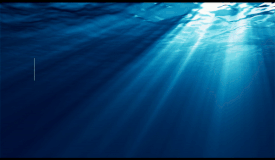Just this week the Bahamas Government announced plans to borrow US$200 million from a group of banks to help the country pull through the global economic crisis. The funding will go towards a stimulus programme and offset revenue shortfall in fiscal 2008/09. The Bahamian Prime Minister Hon. Hubert Ingraham reported that the effects of the global economic crisis on Bahamian economic performance and prospects were "evident and stark," adding that there can be no broad single-stroke response to the global crisis but, rather, "measured and incremental responses must be available as the crisis develops."
Antigua & Barbuda is seeking a US$32 million policy-based loan from the Caribbean Development Bank (CDB) to help the twin-island nation through the crisis.
Some island nations in the region are cautiously optimistic about the regional tourism industry in 2009/10, expecting a challenging 2009; optimistic for the short-term and for the long-term, to work hard to preserve market share. St. Maarten has to take the same approach of preserving its market share.
The events of the past six months have fundamentally changed the world. Tourism destinations will have to work harder than ever to level out the decline in visitor numbers to their destinations and this can only be done by investing in marketing and investing wisely.
Some islands are looking at the upcoming Spring Break in the U.S. With the U.S. State Department issuing a negative travel advice about travelling to Mexico due to the high incidence of drug-related crime, the Caribbean is an alternative destination for students who travel for the Spring Break (March, April). College newspapers and online papers are avenues for advertising/marketing.
Another area being looked at by one Caribbean island nation is a summer programme for professional skateboarders. Recent statistics reveal that there are now 20 million skateboarders in the United States alone.
Other areas being are the wedding and honeymoon markets for the summer months as well as family vacations which are now more important than ever before.
During times of recession when consumer spending drops, consumers will still choose to travel, but not as much as they had previously. A destination has to also remain loyal to its repeat visitors because they will help make a tremendous impact on the destination when there is no growth from new visitors.
The booking window for visitors is also getting shorter when making a reservation to go on holiday and the day you leave. On average it would be from 30 to 60 days, and this would determine for hotels and tourism authorities what the upcoming season would look like two to three months in advance. Today, it's a different ball game as travel trends have adjusted to the economic recession and many travellers are now making a reservation five days before they travel or a day before in order to get the best deals.
Some hoteliers and others in the U.S. Virgin Islands who market to tourists have reportedly said that the usually busy February hasn't turned out to be as bad as anticipated going from catastrophic to crappy.
Our nation's economic growth for 2009 will be directly related to what is happening internationally in North America, Europe and Latin America. Once these three geographic areas can turn around their economy then we will begin to see a turnaround in our tourism based economy.
Our island nation still has not felt the full brunt of this global crisis as there is still economic activity and buoyancy in the national economy. Once the (high) tourist season comes to an end mid-April early May, things we expect will change further.
The role of a nation's Central Bank is very important in times like these. The NACB Charter limits monetary financing of budget deficits to 10 per cent of the central government revenues in the previous year. This limitation must be seen in the context of an overdraft facility to meet liquidity deficits of the public sector that result from seasonal variations in government revenues.
The current times are exceptional and not business as usual and require an exceptional response. Will the Antillean Central Bank work with the islands to provide that exceptional response?













